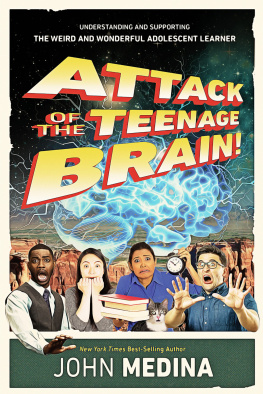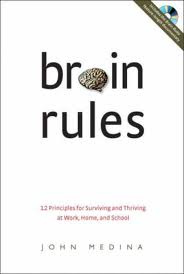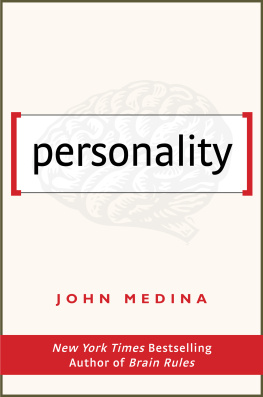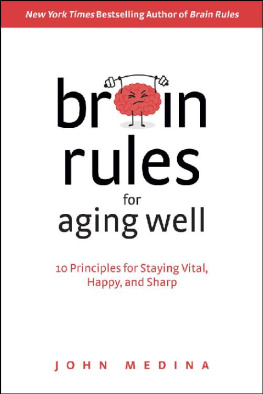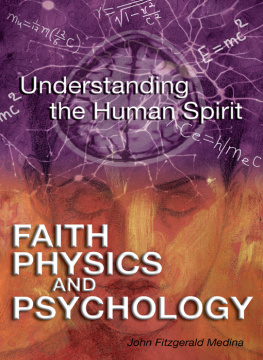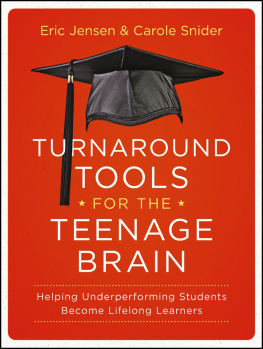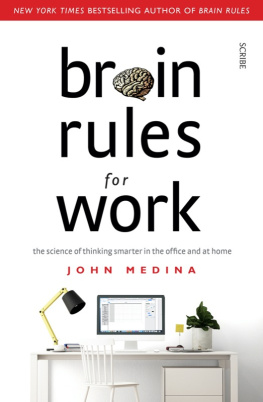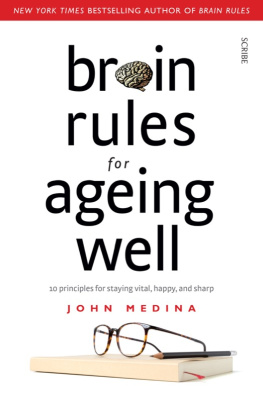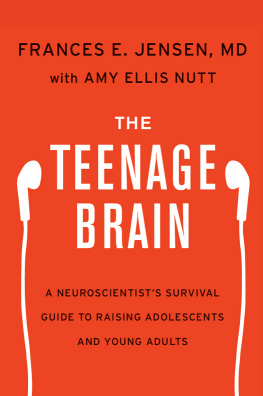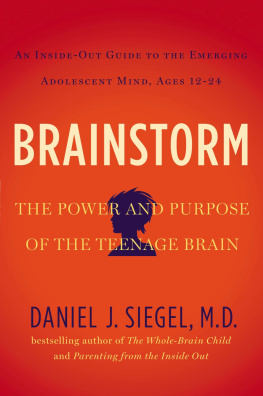Contents
Guide
Pages
Dedication
....................
For Corinne Cruver
19292017
Introduction
....................
Whether you're a parent interacting with one adolescent or a teacher interacting with many, you know the truth: teens can be hard to parentand even harder to teach. When I drop the phrase "attack of the teenage brain," you nod knowingly. Perhaps the word "attack" even strikes you as an understatement.
I have a message for any adults currently sheltering in place as the Battle of Adolescence rages around you: you've come to the right book. We're going to talk about how to parent and teach teenagers, focusing primarily on education-related issues. We're also going to envision what a high school might look like if teen brain development were its optimal goal, and if we enlisted the cooperative efforts of parents and educators to help our challenging, sometimes infuriating, often weird, and genuinely wonderful kids get what they need as they fight their way toward adulthood.
Maybe you're too young to remember Attack of the Teenage anything. So let's kick things off with something still long in the tooth, but a bit more contemporary: a scene from Star Trek III: The Search for Spock.
It opens with stable, logical, good old Mr. Spock acting anything but stable, logical, or good-old. In the scene, he's a teenager, and we see him yelping at the moon and crying inconsolablythe Vulcan equivalent of stomping upstairs and slamming the bedroom door. We're told he is experiencing pon farr, a mysterious hormone surge that happens to beings of his race every seven years and must be sexually requited. Sounds to humans like a nightmarishly reoccurring puberty.
Mr. Spock is hardly alone in being bewildered by the seeming illogicality of sexual maturation, even if his struggles are constrained to a fictional once-every-seven-years itch. Whether in the 23rd century or the 21st, adolescence seems as inexplicable to the long-suffering human teens experiencing it as it does to long-suffering human adults witnessing it. To the research world, however, adolescence is neither inexplicable, illogical, nor unfamiliar. Puberty is as old as the Pleistocene and as recent as next week. I hope, in these pages, to use the sturdy tools of brain science to show just how much more familiar we are becoming with it, describing in detail the warp and woof of teenage brain development.
I am inviting you along on this journey not simply because the brain is an amazing place for teachers and parents to boldly go exploring, though it certainly is. This book has an explicit ulterior motive: I hope to show every teacher and parent on the planet why they should know and care about a specific cognitive gadget called executive function, and I hope to make the case for altering the educational landscape to help teens use their executive function skills more efficiently. This is, I believe, the missing link when it comes to improving secondary education.
I'll argue that more than any other single intervention, boosting executive function is a dependable method for improving teen academic achievement. And it also moonlights as the best way for frustrated parents to guide their pon farrsoaked charges. There is a constellation of peer-reviewed papers, mostly from the neurosciences, shedding light on the academic and social benefits of supporting executive function development. The sunny light they radiate can warm adults who spend their days teaching teens on even the most behaviorally frigid days.
Getting to the Heart of the Brain
My first task in this book is to describe what executive function is; my second is to guide you through the mystery of why teens behave as they do; my third is to examine proven ways to enhance executive function and consider the consequences those findings have for education. Written primarily with teachers in mind, with an eye toward parents who can benefit as well, this book includes a fair amount of peer-reviewed behavioral psychology and neurobiology, which may sound scary or, worse, too esoteric to be truly useful.
Perhaps I can offer some reassurance. I am a developmental molecular biologist with research interests in the genetics of psychiatric disorders. I have spent most of my career as a private research consultant, working with companies ranging from biotech firms interested in the genes of schizophrenia to computer companies interested in anxiety. My participation in these advisory activities has led to many hours interacting with smart, highly motivated professionals whose last biology class occurred when they themselves underwent pon farr. So I promise to keep the jargon to a minimum, the concepts as clear as possible, and the prose liberally sprinkled with anecdotes and metaphors. I will insert the neurobiology where necessary, but always in pursuit of the goal of explaining executive function as clearly as I can.
Two Bits of Background
In support of this vow of clarity, I have two pieces of background information to share before we embark. The first concerns how scientists view the origins of human behavior.
We used to regularly engage in silly intellectual food fights about whether behaviors were caused by nature or by nurture, whether they were hardwired in human genes or softwired in the culture. We stopped fighting about this when our research told us we were using the wrong conjunction: it's not nature or nurture; it's nature and nurture.
To use a familiar example, you might be genetically programmed to achieve a certain height. Genes are proxy for nature here, under the regulatory control of human growth hormone. If you aren't fed properly during childhood, however, your growth may be permanently stunted. That's nurture, overriding any executive order your height hormone may try to issue. Both nature and nurture serve as chefs in this kitchen, and together, they dish out how tall you become. This duality is also very true of executive function, as I will explain later.
The second piece of background has to do with some frankly off-putting attitudes a few adults (not you, of course) have about teens. Some think adolescents are simply defective grown-ups, that there is something "wrong" with them when they act like horny aliens from Marsor Vulcan. There is no question that adolescents aren't adults, but I hope to show that "defective" is hardly the right word to describe them. We'll discover that teen brains were genetically wired to perform specific functions, mostly related to solving problems of genetic diversity eons ago. If adolescents seem imperfect now, it's only because most of the obstacles their brains were wired to traverse no longer exist, and we haven't sojourned long enough in organized society for adolescent brains to get the memo. As the father of two teenagers, I can testify that teens make errors all the time. But there's a big difference between an error and a flaw.
If you can hang with me through all this, I promise to keep the neuroscience approachable and ensure that the intellectual load-bearing is done by peer-reviewed research. I promise to clearly explain how it relates to the teenagers in both the Star Trek universe and in ours. And I'll draw it all together to show how we should tailor educational experiences to further teenagers' academic progress and social development.
Deal? If so, then I invite you to read on. We've got a whole galaxy of fascinating things to explore.

